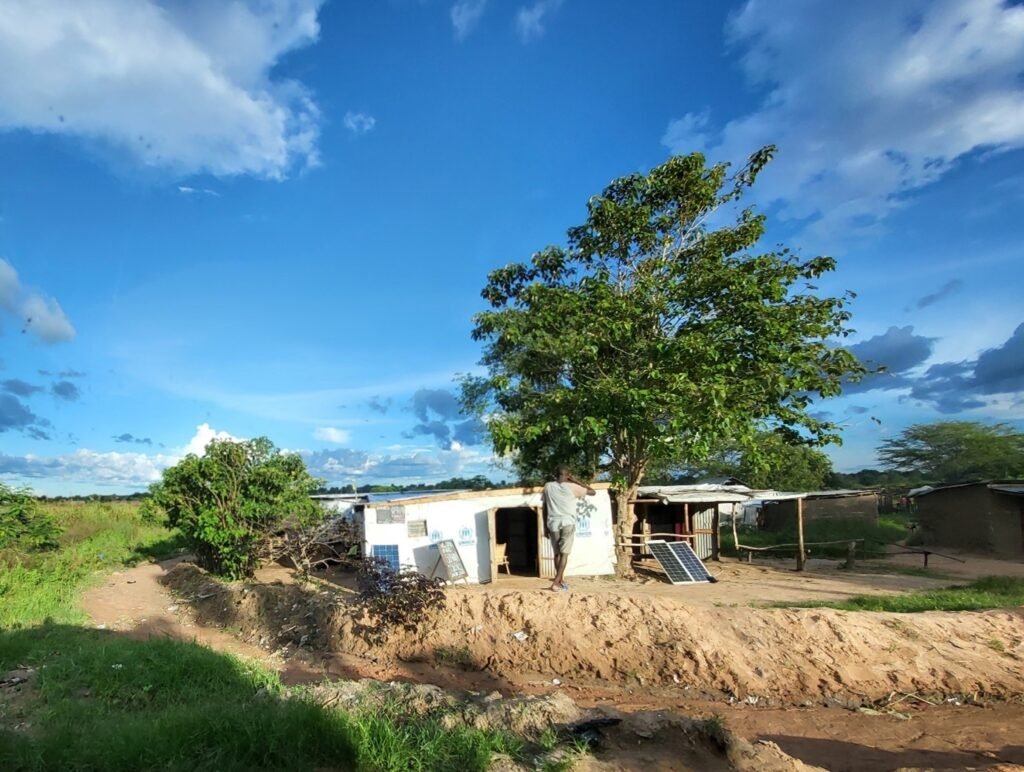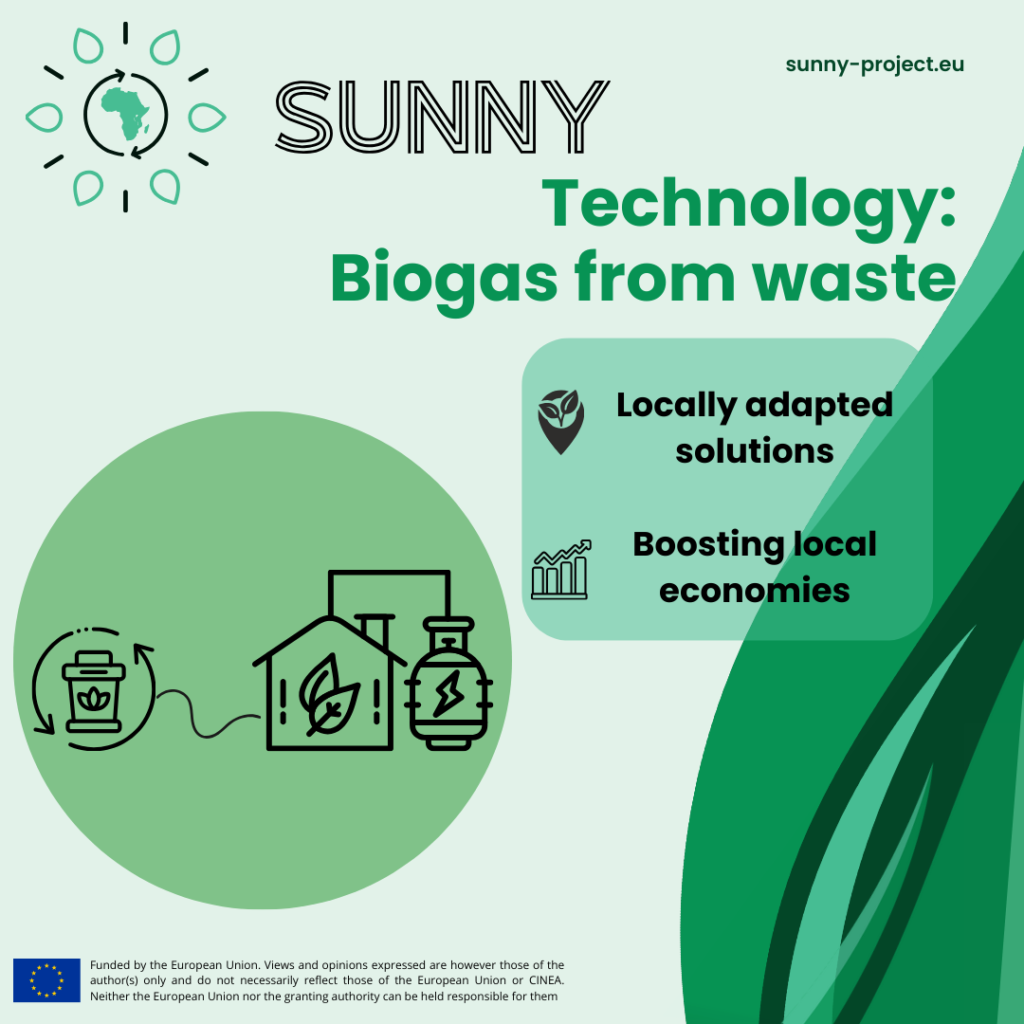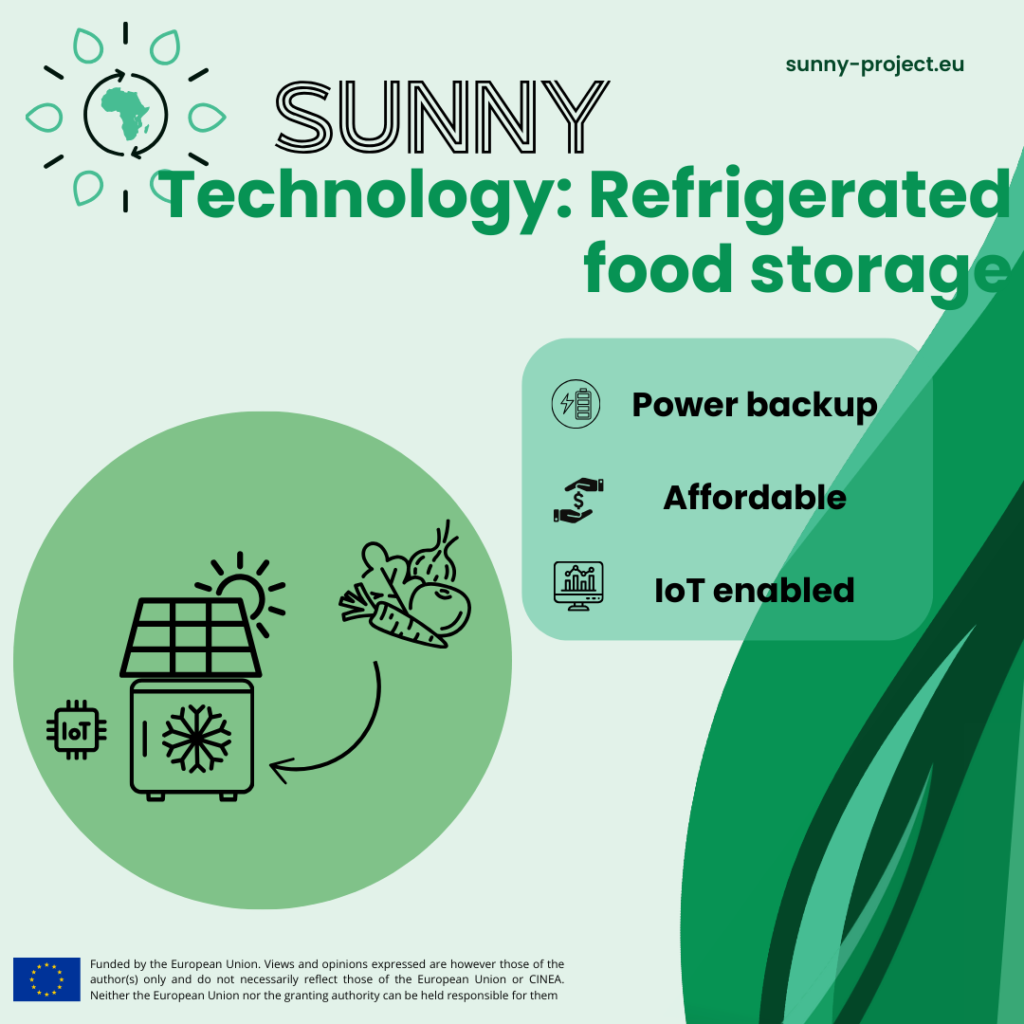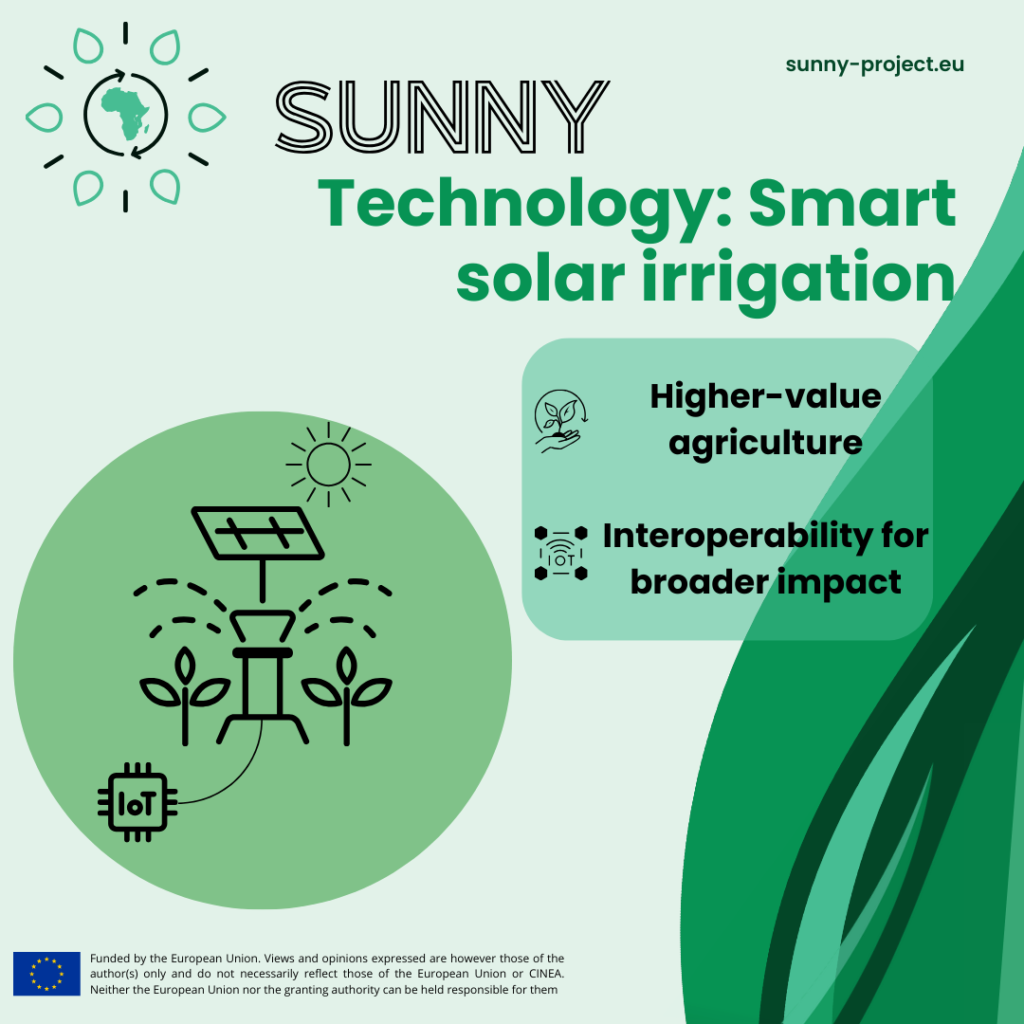Access to clean and sustainable energy is not just a technical challenge; it’s a fundamental aspect of improving lives.
In the face of displacement and resource scarcity, access to sustainable energy is a cornerstone for building resilience, promoting livelihoods, and ensuring dignity. At the Bidibidi Refugee Settlement in Northwest Uganda, the SUNNY project is implementing innovative renewable energy solutions to address these pressing challenges and explore their impact across the Water-Energy-Food (WEF) nexus.
Home to 270,000 displaced persons—primarily fleeing civil war in South Sudan—Bidibidi is one of the largest refugee settlements in the world. With no access to the national electric grid, both refugees and the surrounding host communities rely heavily on expensive, unreliable, and environmentally harmful energy sources. Through collaboration with partners UMAK, META, SOLHYD, AKO, and SOLEK, SUNNY is bringing sustainable solutions that integrate energy, food security, and agricultural productivity to unlock a brighter future.
The Energy and Development Context in Bidibidi
Since its establishment in 2016, Bidibidi has faced significant challenges in meeting its energy needs:
- Limited Energy Access: Refugees and local host communities rely on costly fuel-powered generators, biomass, and small solar systems for basic needs.
- Impact on Healthcare and Education: Health centers and schools struggle with inadequate power.
- Food Insecurity: The region’s dependence on subsistence farming and limited irrigation systems makes agriculture vulnerable to weather variability.
- Environmental and Economic Strains: Heavy reliance on biomass leads to deforestation, while expensive fuel for generators burdens local businesses and households.
SUNNY’s approach combines biogas, hydrogen cooking, cold storage, and smart solar irrigation to address these challenges. The project aims to improve energy access while fostering sustainable economic growth and food security


SUNNY Project Objectives and Vision
SUNNY aims to demonstrate clean energy solutions while assessing their environmental, social, and economic impact. Our core goals are to:
- Reduce Carbon Footprint by shifting from firewood and diesel.
- Enhance Safety with cleaner, safer cooking and energy options.
- Empower Communities by boosting economic opportunities and gender equality.
- Promote Climate Resilience through sustainable energy models for displaced populations worldwide.
Demonstrated Solutions at Bidibidi
1- Biogas systems

Biogas technology converts organic waste into clean, sustainable cooking fuel. SUNNY is testing. At Bidibidi, the SUNNY team is testing the efficiency and stability of biogas systems tailored to the local context :
- Reliability: Real-time gas meters track performance to ensure consistency.
- Efficiency: Monitoring organic input rates, gas production, and system stability.
2- Combined Hydrogen and biogas cookstoves
Cooking remains one of the primary energy demands in refugee settlements. The SUNNY project is introducing hybrid cookstoves capable of using hydrogen, biogas, and LPG, offering a versatile, clean cooking alternative for households.
- Performance and versatility: Fuel-switching flexibility and energy efficiency.
- Safety and Usability: Trials ensure the stoves are practical, safe, and user-friendly for households.
3- Refrigerated Food Storage
The SUNNY project is addressing food security challenges by introducing energy-efficient cold storage systems. Developed by AKO, these systems preserve perishable goods, reduce food waste, and support local agricultural businesses.
- Community Impact: By extending the shelf life of perishable produce, cold storage solutions will empower farmers and businesses to reduce losses, access new markets, and improve incomes.
- Energy Efficiency: Ensuring optimal performance with minimal energy consumption.
- Reliability and Usability: Systems will be evaluated for ease of use, temperature consistency, and durability under local conditions.

4- Smart solar irrigation

Water management is critical for agricultural productivity, particularly in regions like Bidibidi, where farming is the main economic activity. SUNNY is implementing solar-powered irrigation systems that maximize water efficiency while integrating renewable energy solutions :
- Standardization: Developing protocols for seamless interoperability among renewable energy systems to enhance integration and scalability.
- WEF (Water-Energy-Food) Nexus Analysis: SUNNY is analyzing how smart irrigation systems, combined with energy-efficient cold storage and clean cooking technologies, contribute to sustainability and resilience.
- Remote Monitoring: Real-time data analytics will optimize irrigation schedules, cooking efficiency, and cold storage performance.
- Energy Sharing: Surplus solar energy from irrigation systems will be studied for its potential to power hydrogen production, creating synergies across technologies.
Why It Matters: a Transformative Impact
The SUNNY demonstration site at Bidibidi delivers benefits across key areas:
- Energy Access: Clean, affordable reliable energy for homes, health centers, schools, and businesses.
- Food Security: Smart irrigation and cold storage reduce food losses and improve productivity.
- Economic Empowerment: Farmers and local entrepreneurs access opportunities to expand businesses and their incomes.
- Environmental Sustainability: Lower biomass and fuel usage mitigate deforestation and carbon emissions.
- Resilient Communities: By addressing energy, food, and economic needs, SUNNY fosters long-term stability and self-reliance.


A Model for the Future
The Bidibidi demonstration site highlights the transformative potential of renewable energy to address interconnected challenges in refugee settlements and surrounding communities. By integrating clean energy solutions across the WEF nexus, SUNNY is paving the way for scalable, sustainable models that can be replicated in similar contexts worldwide.

